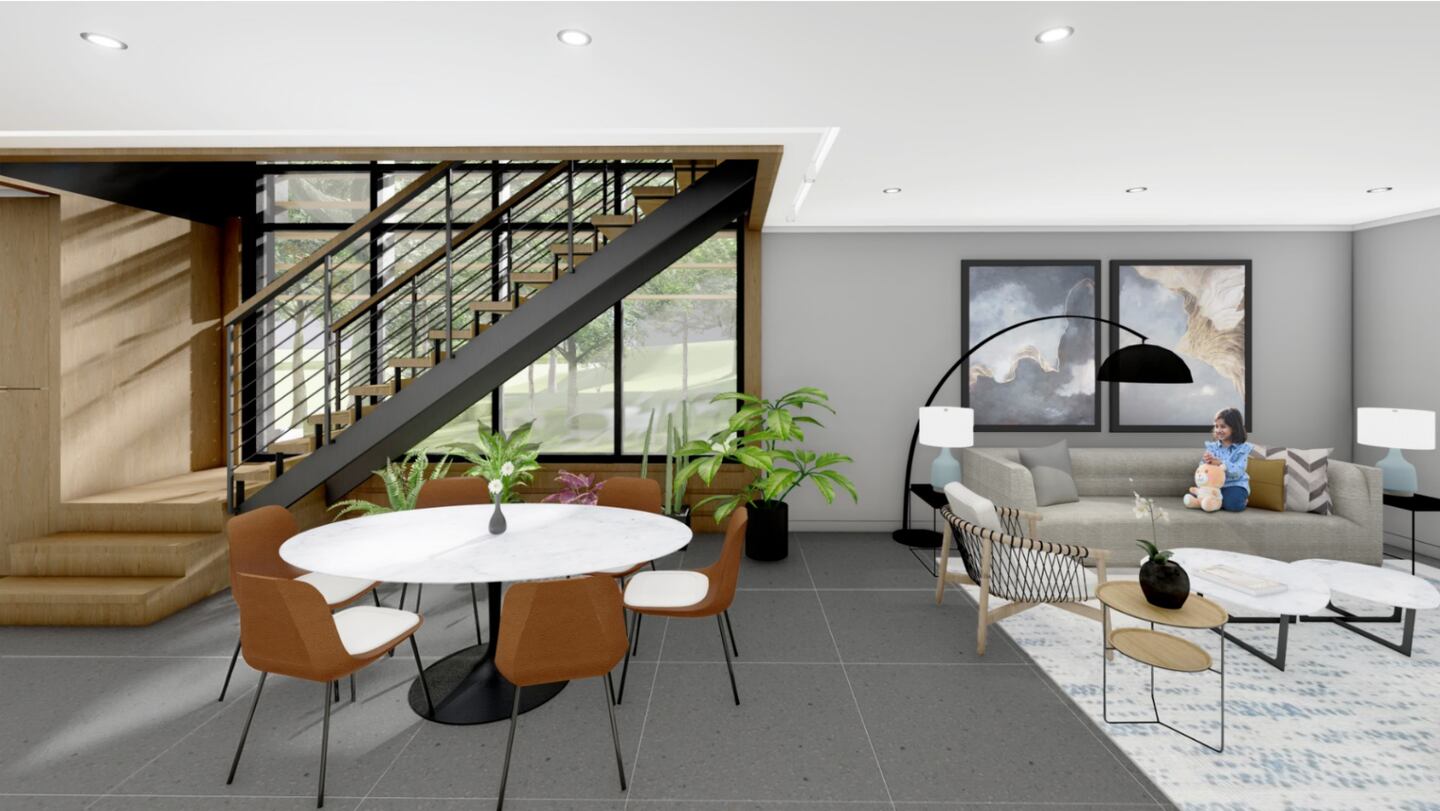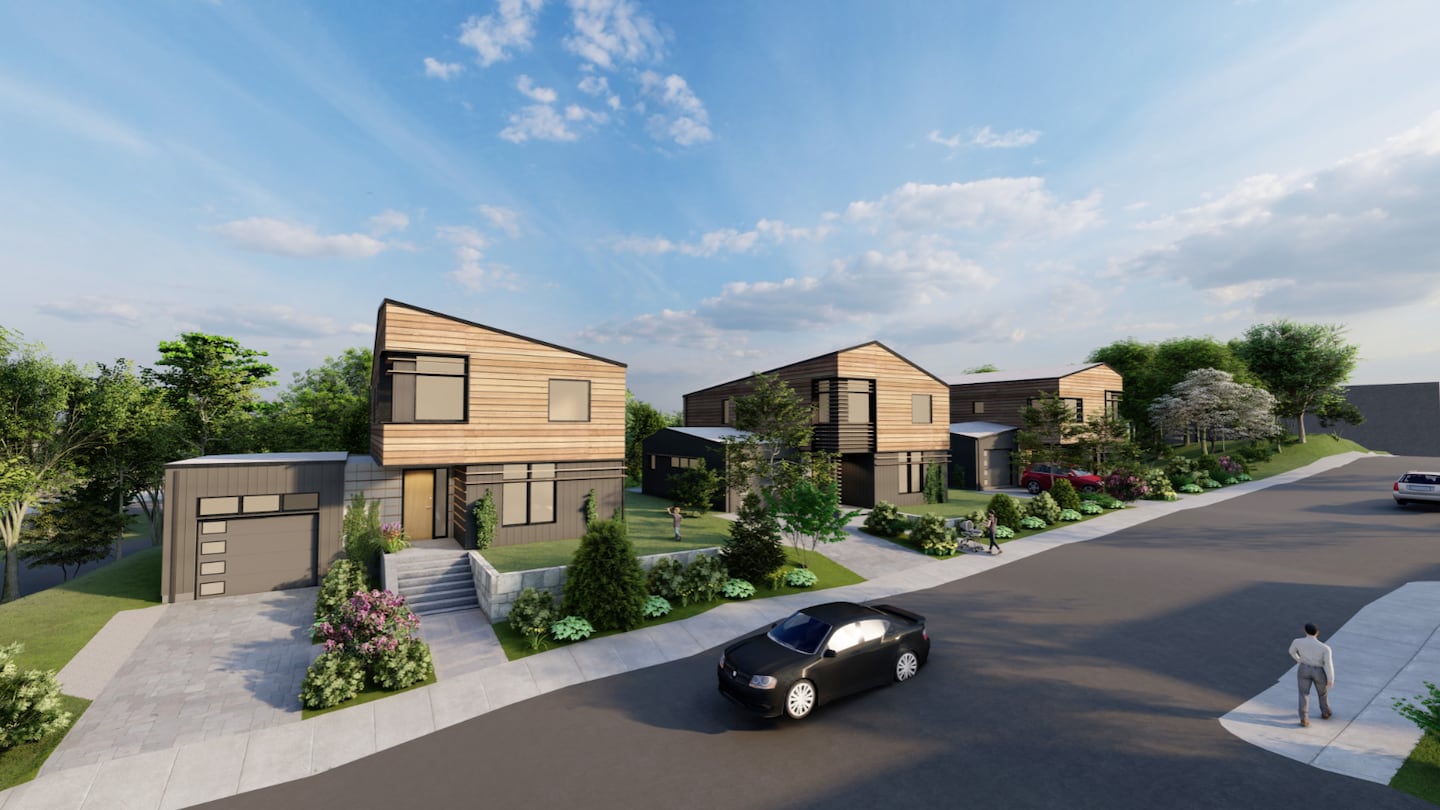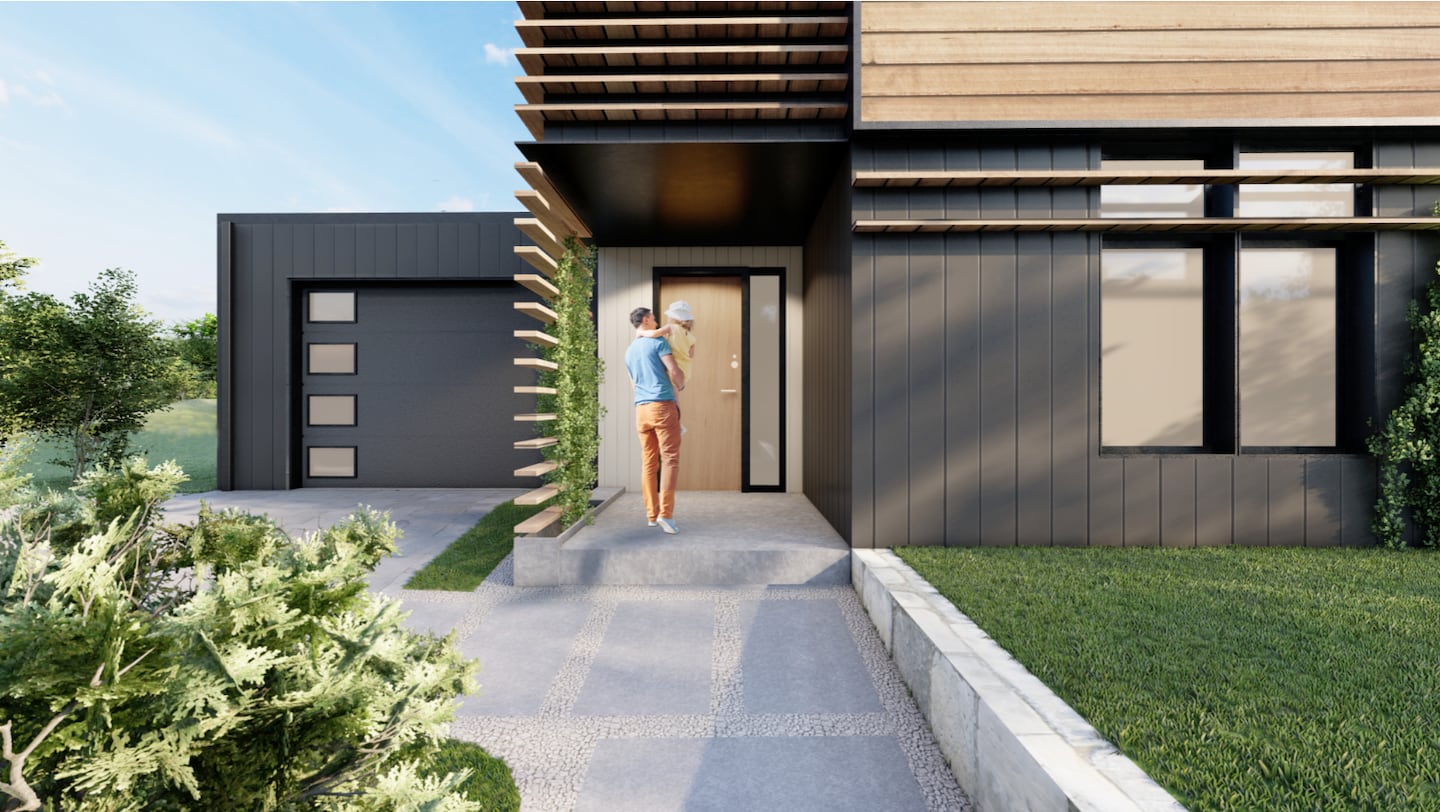BOSTON — One of the biggest creators of greenhouse gas emissions are homes.
Boston’s first set of certified passive homes is now being built in West Roxbury. Called “Brucewood by the Park”, These futuristic dwellings will use almost no energy when they’re occupied.
“They are super energy efficient properties that have an airtight envelope and retain all of the heat and air conditioning,” explained Gene Hashkes, a vice president and sales associate at William Raveis in Newton. “They have virtually no utility expense whatsoever.”
Hashkes says an energy recovery system ventilates the interior eight times a day and refreshes the home interior environment with fresh air from outside.
Many of the project’s building materials are specialty items, shipped in from Europe to increase energy efficiency.
Building the house of the future in Boston. Coming up 7am @boston25 Morning News w/ @boston25gene @sara_underwood, @VickiGrafWX shows how a passive home is built -- and how it will use almost no energy. #EarthDay @BOS25Weather pic.twitter.com/Q5RvDdVvHu
— Bob Dumas (@DumasBoston25) April 22, 2021
The design is much different than many of the homes in the Boston area, according to Hashkes.
“Boston has very old inventory which is extremely inefficient and the majority of homes in Boston are typically built between 1880-1920. In the West Roxbury area, you have a lot of capes, some ranches, which are 1950s to 1970s.”
The homes have 2500 square feet of living space, including four bedrooms and 2.5 bathrooms.
“The designs are spectacular,” added Hashkes. “The homes are designed for your family. The layouts are very open. They’re very family-friendly.”
According to the US Department of Energy, transportation uses 32% of the energy, making it the largest consumer. Resident housing is a close second at 30%.
Shichao Liu, a professor of civil and environmental engineering at Worcester Polytechnic Institute, says “If you think about energy consumption reduction in the future to save the planet, then we have to look at the consumption by buildings. Using passive house standards, we can significantly reduce energy consumption by buildings.”
Liu acknowledged passive homes are more expensive to build.
Usually, he says, it can take 10-20 years to break even with energy savings, but that’s because most passive homes have been built in places like Florida and California.
Liu said because Massachusetts often has older, and leakier, homes, the payback period could actually be shorter.
Matt Casale, an analyst for climate and transportation issues at MassPirg, is encouraged to see passive homes going up in Boston.
“Every step along the way we can take to make incremental change and reduce the emissions from our buildings while we’re moving towards sort of the bigger transformative change is definitely really important,” added Casale.
The houses will be solar panel ready if residents want to add them.
The energy they produce would cover the small amount of electricity the house needs and allow the owners to sell the rest back to the grid.
One of the three houses is currently under agreement. The list price is $1,395,000.
Cox Media Group








